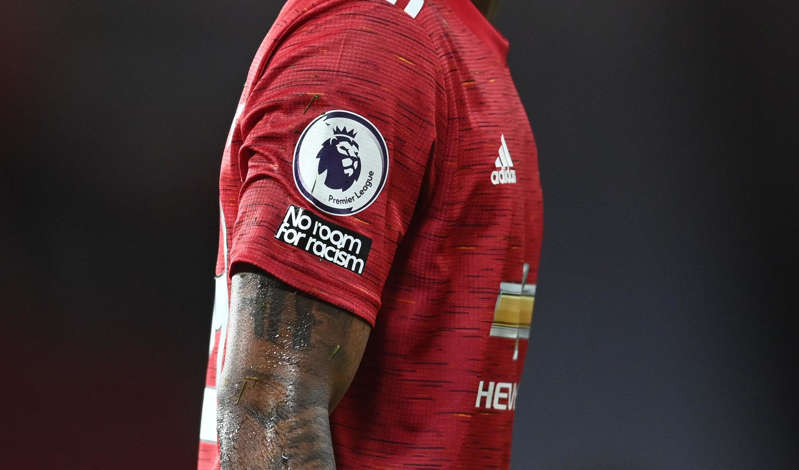Glasgow Rangers and Swansea City are boycotting the social network. Mark Zuckerberg is accused of inaction.

Marcus Rashford, Sadio Mane, Jude Bellingham, Rabbi Matondo and many others have already seen it: Racist attacks on social media. Due to an accumulation of xenophobic and racist remarks, the Welsh second division team Swansea City and the Scottish soccer champions Glasgow Rangers have been boycotting all social media platforms for a week since Thursday.
Thierry Henry recently withdrew completely from social media. The former world-class professional from France referred to “the sheer extent of racism and harassment” in an interview with the British broadcaster BBC. It is too easy to hide behind “fake accounts”.
Hate speech times 6.6 million
Instagram and Facebook did not tolerate any discrimination, a spokeswoman for Facebook Germany told the dpa . “That's why we fight abusive behavior on our platforms and want to hold the people who share such content accountable.” To this end, the group also cooperates with law enforcement authorities “if there is a proper request for information”. This is not enough for many of those affected.
According to Facebook's latest “Community Standards Enforcement Report”, between October and December last year, against 6.6 million pieces of content with hate speech were attacked on Instagram worldwide. Around 95 percent of the content was found before it was reported. This is a significant increase, both in the prohibited content and in the cases discovered, said Facebook. For comparison: In the first quarter of 2020, action was taken against 578,000 hateful content on Instagram, of which only around 43 percent were found before they were reported. Instagram has been part of Facebook since 2012.
Wales captain Gareth Bale says there are some “toxic people” on social media after his international teammates Rabbi Matondo and Ben Cabango were subjected to racial abuse online pic.twitter.com/MLCSi5QOV0
– BBC Sport Wales (@BBCSportWales) March 29, 2021
“Disgusted”
Thierry Henry's social media retreat also met with support from Welsh international Gareth Bale. His national team colleague Rabbi Matondo is one of the youngest victims. Following attacks in late March, the 20-year-old Stoke City striker accused Instagram of doing “absolutely nothing” against racist comments. A little later, Facebook deleted the corresponding Instagram accounts.
In the UK in particular, there is resistance to the rise of hatred on social media, as demonstrated by the boycotts of Swansea City and the Glasgow Rangers. After racist attacks on Dortmund professional Jude Bellingham at the end of March, both BVB and the English Football Association (FA) showed solidarity with the 17-year-old national player. One was “disgusted” by the discriminatory abuse, tweeted the FA: “Something has to change.”
Thierry Henry says he has “had enough of talking” about racist abuse, following his decision to come off social media
– Sky Sports (@SkySports) March 31, 2021
Zuckerberg doesn't do anything about it
Most recently, leading British football officials on Facebook, Instagram and Twitter called for a stronger commitment against racism. In a letter to the chairmen of the board, Mark Zuckerberg (Facebook) and Jack Dorsey (Twitter), they accused them of inaction. “We have had many meetings with your executives over the years, but the reality is that your platforms are still havens for abuse,” wrote the group around Premier League boss Mark Bullingham. “Your inaction has led the anonymous perpetrators to believe that they are unreachable.”
According to its own statements, Facebook has recently taken “even tougher measures against people who repeatedly send abusive direct messages”. These included new privacy and security functions as well as comment filters. Nevertheless, the group does not see the blame alone: “We are also aware that these problems go beyond our platforms and we are working with the industry and the government to drive social change through action and education,” shared the Facebook Spokeswoman with.
The company reacted cautiously to the request made by players and those affected to be able to register only with real names and proof of identity. The proposal to require ID cards carries risks: on the one hand, millions of people who do not have easy access to official ID cards would be excluded. On the other hand, databases with ID information are exposed to security risks, according to Facebook.

